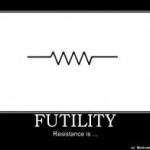Congratulations to ReligionFreeDeist and evangelical1 for winning the Resurrection challenge.
Why are naturalistic explanations preferred?
(hover the mouse pointer over the scripture references)
What happens if you do acknowledge the evidence for the resurrection?
Then you have to take Jesus seriously… (Jn. 18:37)
Jesus taught that man is hopelessly sinful and lost. This is an inconvenient truth, also it’s not a likely human invention. (Jn. 8:34)
It’s also extremely distasteful if you believe you are a ‘good’ person. (Mrk. 10:18)
He taught that the penalty for sin is eternal separation from God in a place called hell. This is radically different from Judaism it was Jesus’ new teaching — another inconvenient and very unattractive idea from a humanist perspective — why would human beings make this up? (Matt. 10:28)
Jesus dies for our sins, and this seems weird to us, even unjust. Yet it has coherence with the Torah’s sacrificial system and especially with the account of Abraham taking Isaac up on the mountain. The concluding message was that God would provide the lamb for the sacrifice. (Gen. 22: 8, 22:14)
Then John the Baptist comes along and declares Jesus as “the lamb of God who takes away the sin of the world.” (Jn. 1:29)
Jesus teaches that this is not something you can earn with your good behavior, but salvation is a free gift from God (Jn. 15:16). This is an idea that appears in no other world religion, unmerited grace. We like to take pride in our accomplishments. This is just not something men would come up with. (Eph. 2:8)
To receive this free gift of salvation, it is a requirement to acknowledge the resurrection.(Rom 10:9)
If the message of Jesus has opened you to the need for forgiveness and to the reality of God… then perhaps the anti-supernatural dogma might lose its power over your mind. The evidence is there and it is compelling.
After all… who are you? what are you? your mind, your consciousness, your sense of self is an immaterial reality that transcends naturalistic explanation. So why the insistence on only naturalistic explanations? (1 Cor 2:14)
Could it be that openness to a supernatural explanation is not prejudice to believe in the resurrection, but freedom from prejudice against it?





